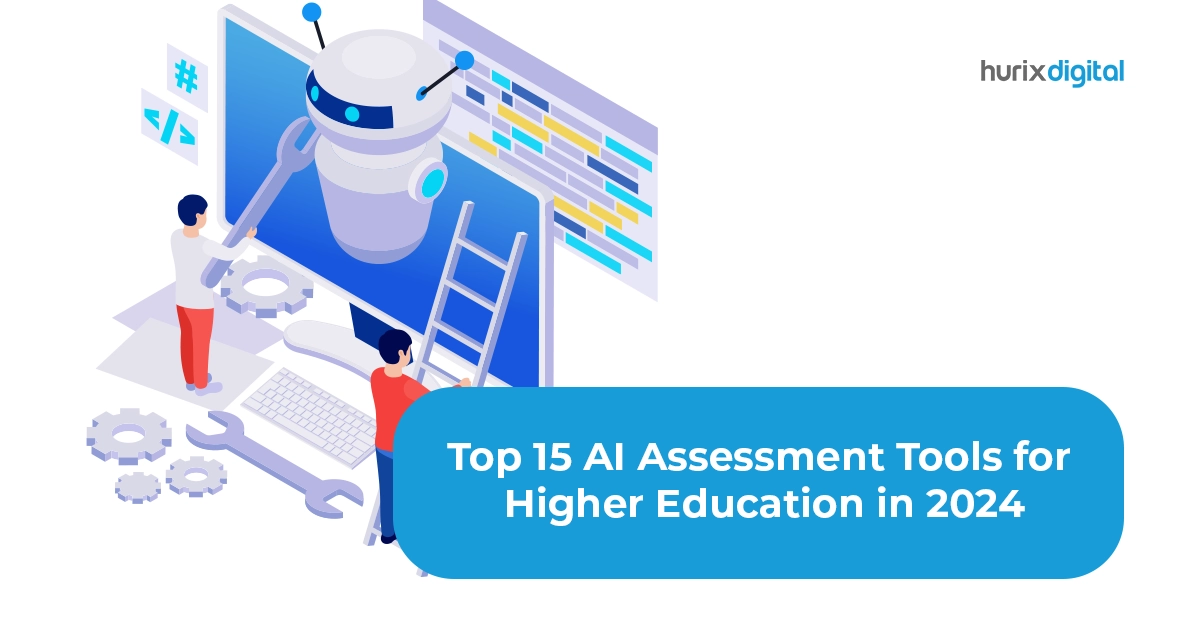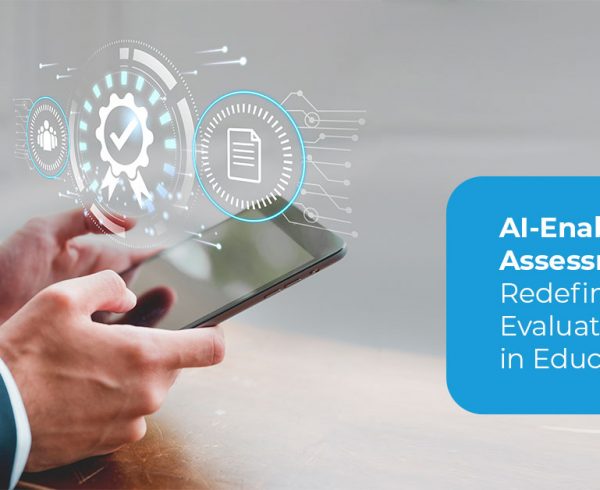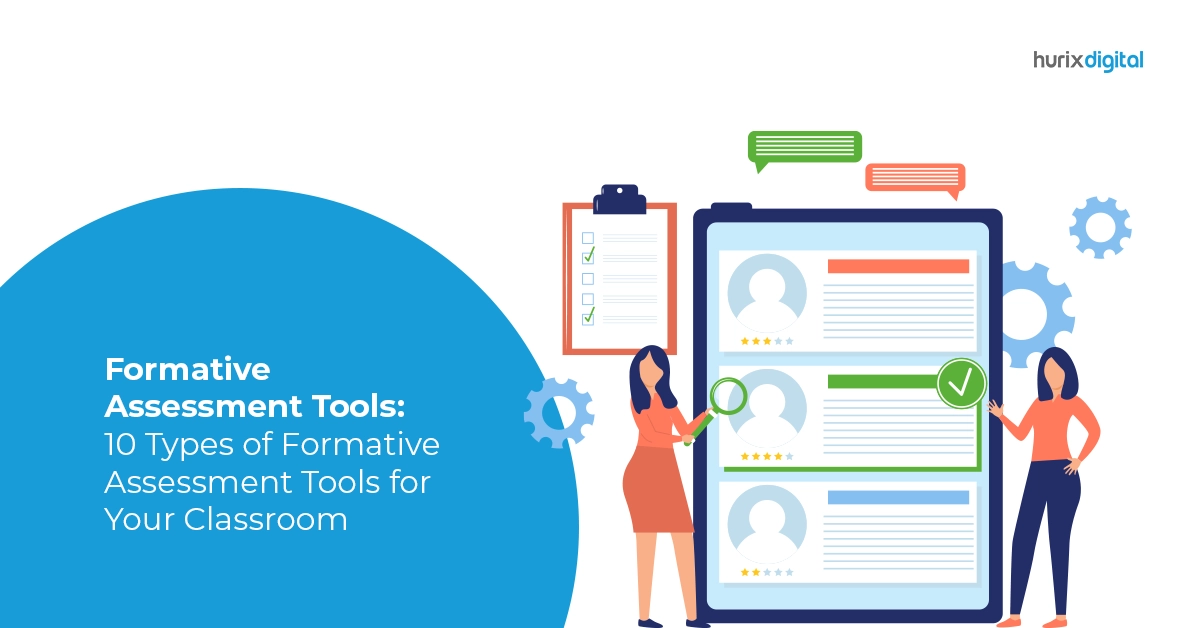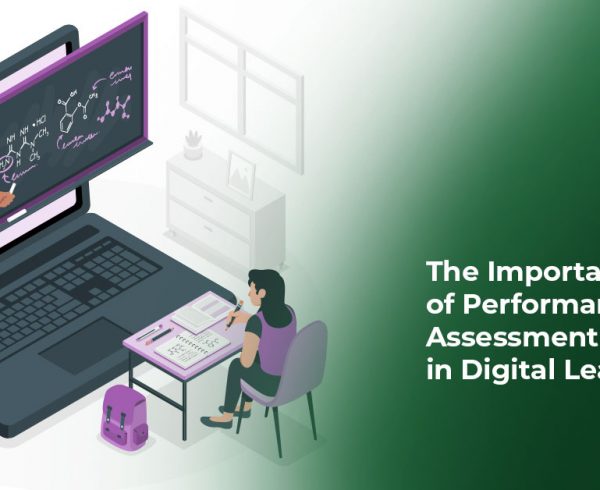Summary
Discover the latest advancements in AI-driven assessment tools for higher education in 2024. From plagiarism detection to adaptive learning platforms, these tools are reshaping the educational landscape, enhancing efficiency, and fostering personalized learning experiences. Explore how Hurix Digital can help you harness the power of AI in education.
In today’s rapidly evolving educational landscape, the integration of technology has become paramount in facilitating effective learning and evaluation processes. With the advent of artificial intelligence (AI), assessment tools tailored for higher education institutions have undergone a significant transformation. These innovative tools not only streamline the assessment process but also enhance the learning experience for both students and educators alike.
Table of Contents:
- What are assignment tools?
- Importance of assessment tools in higher education
- Top 15 AI Assessment Tools for Higher Education in 2024
- Conclusion
What are assignment tools?
Assessment tools are instruments or methods used by educators to evaluate and measure students’ knowledge, skills, abilities, and learning outcomes. These tools come in various forms, ranging from traditional pen-and-paper tests to innovative digital platforms powered by artificial intelligence. Common assessment tools include exams, quizzes, essays, projects, presentations, observations, and performance assessments. Each tool serves a specific purpose and provides valuable insights into different aspects of student learning. Formative assessment tools are used to monitor student progress during the learning process, providing feedback to guide instruction and facilitate ongoing improvement. Summative assessment tools, on the other hand, are typically used to evaluate students’ overall achievement at the end of a course or academic period. Additionally, assessment tools can be categorized based on their format, such as objective (e.g., multiple-choice questions, true/false statements) or subjective (e.g., essays, open-ended questions), as well as their administration method, including traditional in-person assessments and online assessments. With advancements in technology, assessment tools have evolved to incorporate features like automated grading, adaptive learning algorithms, and data analytics, enabling educators to streamline the assessment process, personalize learning experiences, and gain deeper insights into student performance. Ultimately, assessment tools play a critical role in guiding instructional decisions, promoting accountability, and supporting student success in educational settings.
Importance of assessment tools in higher education
In higher education, assessment tools serve as linchpins in the pursuit of academic excellence and student success. These tools are indispensable for educators in gauging the effectiveness of teaching methods, evaluating student comprehension, and informing instructional decisions. By employing a variety of assessment techniques, including exams, quizzes, projects, presentations, and portfolios, educators can gain a comprehensive understanding of students’ learning progress and mastery of course material. Assessment tools not only measure what students have learned but also provide valuable feedback for improvement, fostering a culture of continuous learning and growth. Moreover, assessments play a crucial role in promoting accountability and transparency within educational institutions, ensuring that academic standards are upheld and learning objectives are met. They provide benchmarks against which students can measure their own progress and set goals for improvement. Additionally, assessment tools help institutions meet accreditation requirements and demonstrate the quality of their programs to stakeholders. In today’s rapidly evolving educational landscape, assessment tools also play a vital role in supporting online and hybrid learning models, providing educators with the means to assess student performance in virtual environments effectively. With the advent of artificial intelligence and data analytics, assessment tools are becoming increasingly sophisticated, offering personalized learning experiences and actionable insights into student learning behaviors. Ultimately, assessment tools empower educators to tailor their instruction to meet the diverse needs of learners, ensuring that every student has the opportunity to achieve their full potential in higher education.
Let us delve into the top 15 AI assessment tools reshaping higher education in 2024
Top 15 AI Assessment Tools for Higher Education in 2024
- Proctorio
Proctorio is a robust AI-powered proctoring solution that ensures academic integrity during online assessments. Its advanced algorithms detect and deter cheating behaviors, providing a secure environment for remote examinations.
- Turnitin
Turnitin utilizes AI to analyze students’ submissions for plagiarism, providing educators with detailed reports on originality and citation accuracy. This tool promotes academic honesty and encourages students to uphold ethical writing practices.
- Gradescope
Gradescope automates the grading process for assignments and exams, leveraging AI to interpret handwriting, recognize patterns, and provide timely feedback. Its efficiency reduces grading time and enhances consistency across evaluations.
- ALEKS
ALEKS (Assessment and Learning in Knowledge Spaces) is an adaptive learning platform that personalizes learning paths based on students’ individual strengths and weaknesses. By continually assessing and adjusting content, ALEKS optimizes the learning experience for each student.
- ExamSoft
ExamSoft offers secure exam administration and robust assessment analytics. Its AI-driven platform ensures exam integrity while providing valuable insights into student performance and learning outcomes.
- Knewton
Knewton’s adaptive learning engine utilizes AI to deliver personalized learning experiences tailored to each student’s proficiency level and learning style. It continuously adapts content to optimize engagement and comprehension.
- Questionmark
Questionmark provides assessment solutions that incorporate AI for item banking, test delivery, and result analysis. Its predictive analytics help educators identify areas for improvement and tailor instructional strategies accordingly.
- Brightspace
Brightspace integrates AI-driven assessment tools within its learning management system (LMS), enabling educators to create, deliver, and evaluate assessments seamlessly. Its adaptive learning features promote personalized learning experiences for students.
- Metacog
Metacog offers AI-powered assessment analytics that capture granular data on student interactions with digital content. This data-driven approach enables educators to gain insights into student learning behaviors and adapt instructional strategies accordingly.
- Top Hat
Top Hat’s interactive platform incorporates AI for assessment creation, engagement monitoring, and performance tracking. Its real-time analytics empower educators to assess student comprehension and intervene when necessary.
- Coursera
Coursera’s AI-driven assessment tools include auto-graded assignments, peer assessments, and plagiarism detection. These features enhance the scalability and efficiency of online learning experiences offered through the platform.
- Codio
Codio’s AI-powered coding assessments evaluate students’ programming skills and provide targeted feedback to enhance learning outcomes. Its auto-grading functionality accelerates the assessment process for coding assignments.
- Kira Talent
Kira Talent utilizes AI for video-based assessments, allowing higher education institutions to evaluate applicants’ communication skills, critical thinking abilities, and personality traits. Its predictive analytics assist in identifying top candidates for admissions.
- Thinkster Math
Thinkster Math employs AI-driven tutoring to personalize math instruction for students, diagnosing misconceptions and offering targeted remediation. Its adaptive approach fosters mastery and confidence in mathematical concepts.
- Gradescope by Turnitin
Gradescope by Turnitin offers AI-powered grading and feedback tools for STEM courses, enabling instructors to efficiently assess complex problem-solving tasks and provide constructive feedback. Its algorithmic grading streamlines the evaluation process for technical assignments.
Conclusion
In conclusion, the proliferation of AI assessment tools signifies a paradigm shift in the way higher education institutions evaluate student learning and performance. These innovative tools not only enhance efficiency and accuracy but also foster personalized learning experiences tailored to individual needs. As educational institutions embrace digital transformation, the integration of AI assessment tools will continue to play a pivotal role in shaping the future of assessment for higher education.
Ready to revolutionize assessment in your institution? Explore how Hurix Digital can empower you with cutting-edge AI-driven solutions tailored for higher education.










